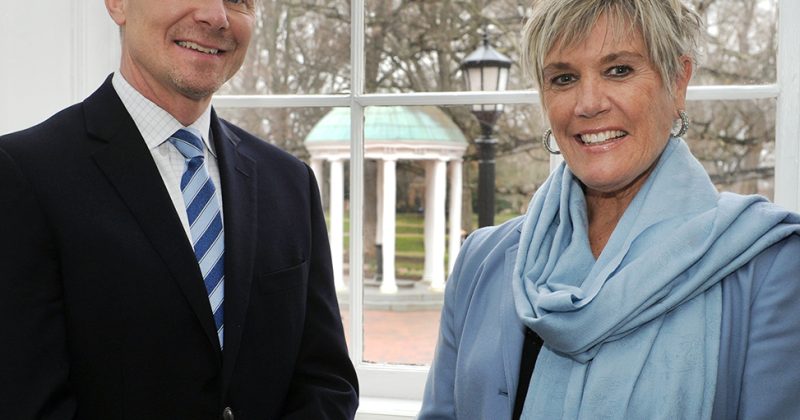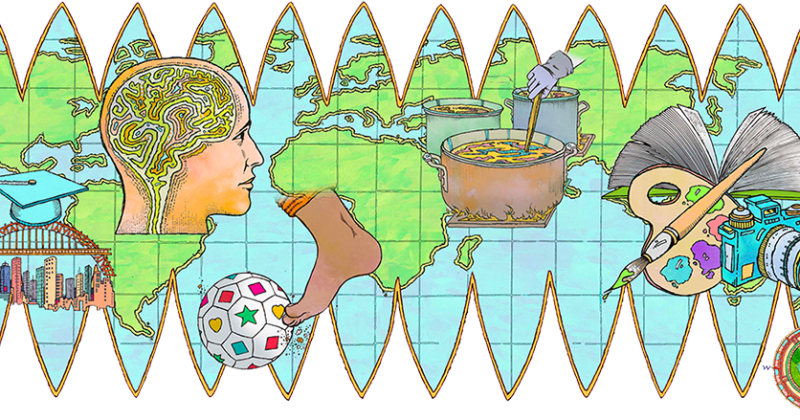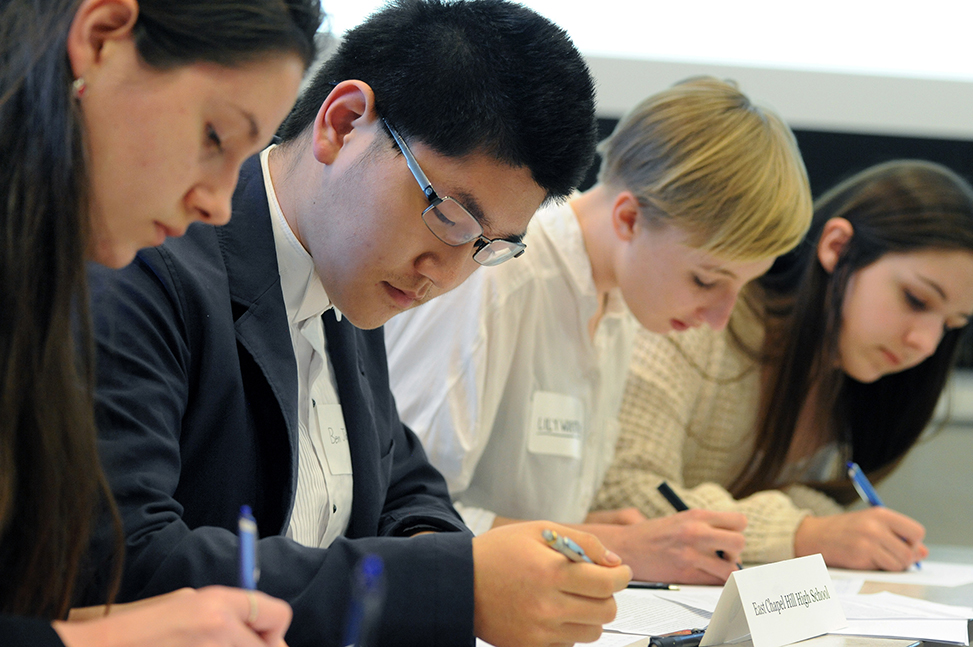
Students debate real-life ethical issues at the National High School Ethics Bowl, held annually at UNC. (photo by Donn Young)
Robyn Schroeder oversees an initiative at Carolina that has the loftiest of names and the ring of a rallying cry: Humanities for the Public Good.
As initiative director, Schroeder oversees the four-year, $1.5 million effort funded by a grant from the Andrew W. Mellon Foundation. Launched in 2017 to build upon the strong public humanities record of the University, the initiative is now roughly at its halfway point, with ambitious projects underway, some lessons learned and plans for programming extending into 2021.
“Public humanities, at its simplest, is bridging knowledge between academics and communities,” said Schroeder.
That bridge handles two-way traffic: Public humanities is more than mere outreach — it is an exchange of ideas and synergies, with academics and audiences learning from one another, both sides enriched by the experience.
In its first year alone, Humanities for the Public Good invested in 25 public humanities projects large and small — representing at least 15 academic departments in the College and 11 centers, institutes or other campus units. The faculty, graduate students or staff involved in these
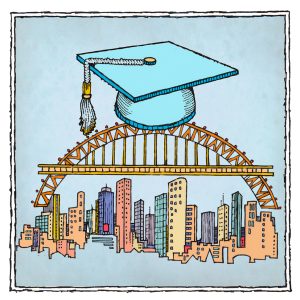
projects are collaborating with 18 community organizations, including international ones.
All told, these projects will touch the lives of 40,000 people — some as near as the Triangle and others as far away as Chile, India and the United Kingdom.
They include:
- Partnering with Carolina Public Humanities to fund lectures, film talks and panel discussions at four community colleges. One example: “At a Stranger’s Table: A Discussion of the Latino Migrant Farm Workers Plight in Eastern North Carolina” at Pitt Community College in Winterville, North Carolina. Following the panel discussion, attendees ate a meal of locally grown food picked and processed by Latino migrant farm workers.
- Funding for the National High School Ethics Bowl, which is based in the Parr Center for Ethics in the College of Arts & Sciences. The ethics bowl is a competitive yet collaborative annual event at UNC-Chapel Hill in which students discuss real-life ethical issues. It teaches ethical awareness, critical thinking, civil discourse, civic engagement and an appreciation for multiple points of view. The funding will go toward creating a database of case files and to build capacity for students in rural communities to participate.
- Supporting the Southern Oral History Program’s Stories to Save Lives project, a research initiative to collect oral histories in rural communities to inform health care research, practice and policy. [See a story in Carolina Arts & Sciences’ fall 2018 issue for more on this project.]
- Funding for 12 graduate students to pursue applied humanities research at cultural organizations in the United States, Guatemala and India. Following their summer of research, the students will take a fall course taught by Schroeder to polish their skills in communicating with diverse audiences. One example: Abigail Lee, a Ph.D. candidate in English and comparative literature, developed a version of UNC’s “Composition and Rhetoric” course (known to every first-year student as ENGL 105) to be taught in correctional settings, in partnership with the William and Ida Friday Center for Continuing Education’s Correctional Education Program.
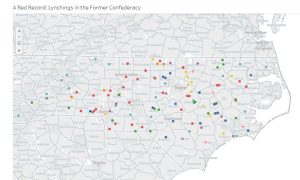
A Red Record, which maps historical lynchings in North Carolina, also received funding from the initiative.
Students converse at a table at the National High School Ethics Bowl
The National High School Ethics Bowl received a grant from Humanities for the Public Good to help increase participation from students in rural communities. (photo by Donn Young)
Although Humanities for the Public Good funds an array of proposals, perhaps its signature effort is the Critical Issues Project Fund. The central theme of the first two rounds of funding was “Migration and Mobility.” Applicants were required to be collaborative teams consisting of faculty from at least two campus units, plus at least one community partner. A digital humanities component was encouraged.
One of the five Critical Issues projects to receive funding in Year One was A Red Record, a visual representation of historical lynchings in North Carolina. The content (see lynching.web.unc.edu) was based on original research by UNC undergraduates beginning in 2015 in classes taught by American studies professor Seth Kotch.
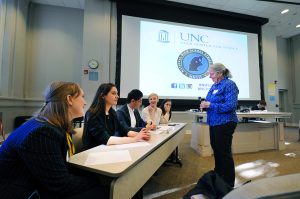
Humanities for the Public Good funding will move A Red Record beyond the Carolina classroom into the public realm, creating lesson plans and training modules for high school teachers to cover this deeply disturbing but essential history.
The Critical Issues Project theme for 2019-21 is “Reckonings and Reconciliation,” which will support projects examining racial violence and exclusion and reconciling them with present-day norms.
“The humanities provide us with the tools to understand how practices of prejudice, discrimination and racial violence have shaped our local, national and global landscapes,” Terry Rhodes, interim dean of the College of Arts & Sciences and principal investigator on the Mellon grant, said of the Critical Issues Project theme. “We want to connect campus and community research endeavors on this subject. This process deepens our understanding of these difficult topics and strengthens our communities.”
The Humanities for the Public Good initiative received a Special Recognition award from the Office of the Provost for its leadership in public service and engaged scholarship at the spring 2019 Carolina Center for Public Service awards ceremony. Read more.
By Geneva Collins
Part of “Tar Heels’ True North,” a package of stories of Tar Heels who directed their compass toward creating a better tomorrow. Read more stories:
Overcoming barriers through food
Published in the Spring 2019 issue | Features


